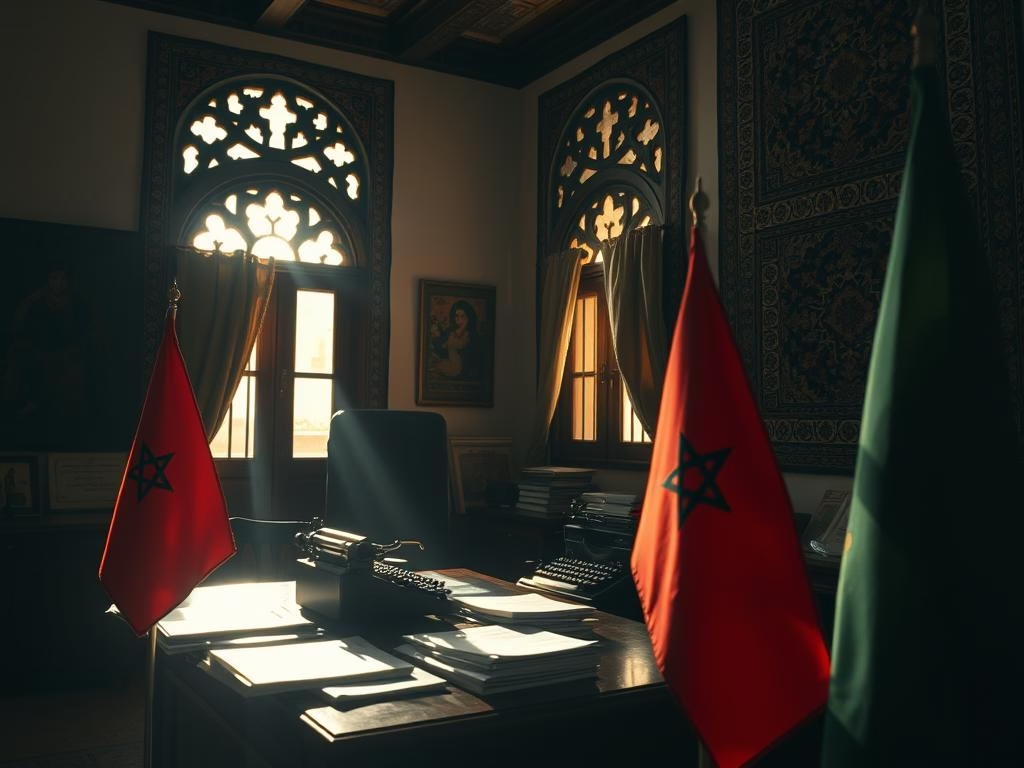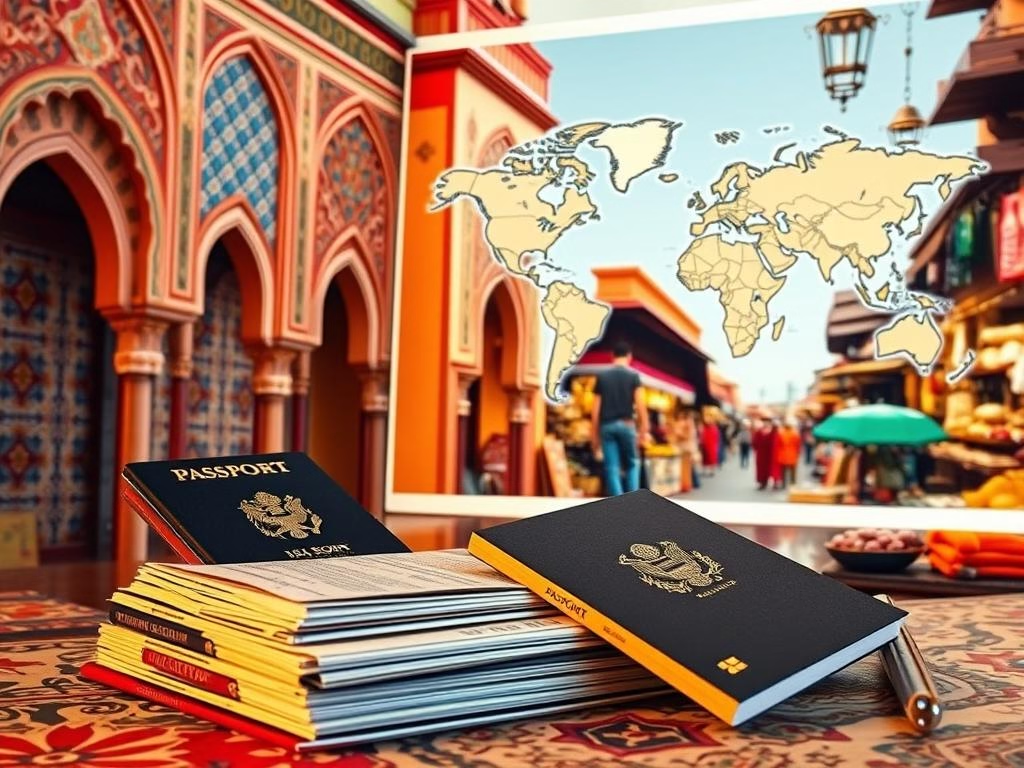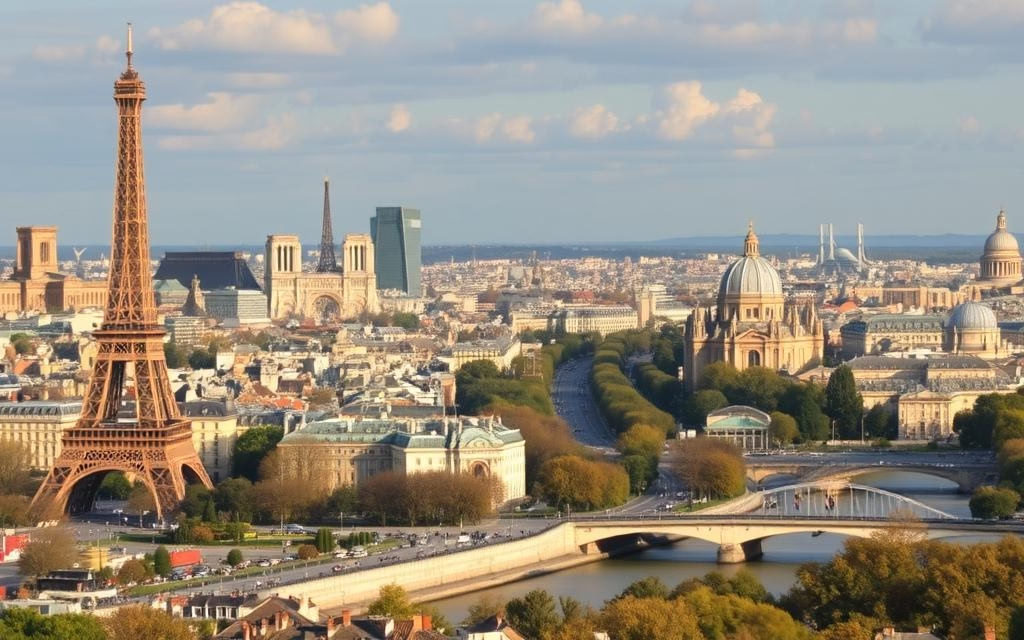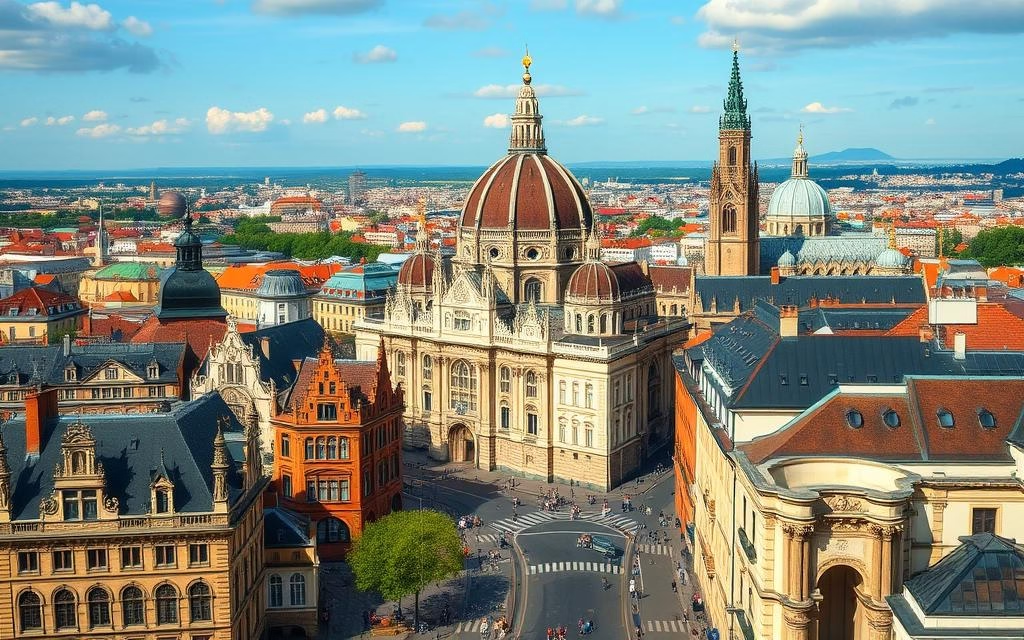US Citizen Visa for Morocco: What You Need to Know Are you planning a trip to Morocco but unsure about the travel requirements? As a traveler from the United States, understanding the necessary documentation is crucial for a smooth journey.
To enter Morocco, you’ll need a valid passport with at least six months’ validity from your planned exit date, a blank passport page for an entry stamp, and a return or onward ticket. You’ll also need to show proof of funds to support yourself during your stay. Plus, you’ll need documentation that supports the purpose of your visit.
Ensuring you have these documents in order will help make your travel experience to Morocco enjoyable and stress-free.
Key Takeaways
- A valid passport with at least six months’ validity is required.
- One blank passport page is needed for an entry stamp.
- A return or onward ticket is necessary.
- Proof of funds to support yourself during your stay is required.
- Documentation supporting the purpose of your visit is needed.
Understanding Visa Requirements for US Citizens
Before you travel to Morocco, US citizens need to know about visa requirements. It’s important to understand these rules for a great trip.
What Type of Visa Do You Need?
The visa type depends on your visit’s purpose. Morocco has different visas for tourism, business, study, or transit. For example, a tourist visa is needed for vacations, while a business visa is for work trips.
Key Considerations for Choosing the Right Visa:
- Purpose of your visit
- Duration of your stay
- Nature of your activities in Morocco
Duration of Stay Allowed
The stay duration in Morocco changes with the visa type. A tourist visa might allow up to 90 days in six months. Knowing your visa’s duration is key to avoid trouble with Moroccan authorities.
“The Government of Morocco considers all persons born to Moroccan fathers to be Moroccan citizens. Dual U.S.-Moroccan citizens are subject to Moroccan law.”
Employment and Study Regulations
For work or study in Morocco, you must follow specific rules. A work visa needs a Moroccan employer’s sponsorship. For study, a student visa is required, with enrollment in a recognized Moroccan school.
| Activity | Required Visa/Type | Key Requirements |
|---|---|---|
| Tourism | Tourist Visa | Valid passport, proof of travel itinerary |
| Business | Business Visa | Letter of invitation from Moroccan company, proof of business activities |
| Study | Student Visa | Enrollment letter from Moroccan educational institution, proof of financial support |
Knowing these rules is crucial for following Moroccan law and having a good time in Morocco.
Types of Visas Available for Morocco
Morocco has many visa types for different reasons to visit. The visa you need depends on why you’re going.
For fun trips, you’ll likely need a Tourist Visa. It lets you see Morocco’s culture and nature.
Tourist Visa
A Tourist Visa is great for those wanting to see Morocco’s culture and history. You’ll need a valid passport, proof of where you’ll stay, and your travel plans. These documents go to the Moroccan embassy or consulate.
Business Visa
For work trips, you need a Business Visa. It’s for meetings, conferences, or talks. You’ll need to show your business plans and an invitation from a Moroccan company.
Student Visa
Students going to study in Morocco need a Student Visa. You’ll need to show you’re enrolled in a Moroccan school. Apply early for this visa.
Transit Visa
For quick stops in Morocco, you might need a Transit Visa. It’s for those with layovers or flight changes. Getting this visa is simpler than others.
Here’s a quick guide to the different visas and what they’re for:
| Visa Type | Purpose | Required Documents |
|---|---|---|
| Tourist Visa | Leisure, tourism | Passport, proof of accommodation, travel itinerary |
| Business Visa | Business meetings, conferences | Passport, invitation letter, proof of business activities |
| Student Visa | Study in Morocco | Passport, proof of enrollment, financial support documents |
| Transit Visa | Transit through Morocco | Passport, travel itinerary, proof of onward travel |
Knowing what each visa needs helps you choose the right one. This makes your trip to Morocco better.
How to Apply for a Moroccan Visa
To visit Morocco, US citizens must go through a visa application process. This process has several steps. Having all the right information and documents makes it easier and boosts your approval chances.
Application Process Overview
The first step is filling out the required forms. You can do this online or at the Moroccan Consulate. Our forms guide you, making it simpler to fill them out correctly. After you’ve filled out the forms, we check your application to help you get approved.
Make sure all your information is correct and complete to avoid delays in processing your visa.
Required Documentation
To apply for a Moroccan visa, you need certain documents. These include a valid passport, proof of funds, and documents for your stay’s purpose. The documents needed depend on the visa type, so check the specific requirements for your case.
Your passport must be valid for at least six months after your stay to meet a key requirement.
Visa Fees and Payment Methods
Applying for a visa comes with fees. The payment options vary based on how you apply. If applying online, you can pay online. If applying in person, you pay at the consulate. Always check the current fees and payment options to avoid problems.
Have the right payment ready because some methods might not be accepted.
Where to Submit Your Visa Application
To get a Moroccan visa, you need to know where to apply. As a US citizen, you have several options. Choose the one that works best for you.
Moroccan Consulate Locations
Applying in person at a Moroccan Consulate is a common choice. You can find Moroccan Consulate locations on the Moroccan government website. Going there lets you submit your application and get help from officials.
Here is a list of Moroccan Consulate locations in the United States:
| City | Address | Phone Number |
|---|---|---|
| New York | 22 E 61st St, New York, NY 10065 | (212) 758-2625 |
| Washington, D.C. | 1601 21st St NW, Washington, DC 20009 | (202) 462-0660 |
Online Application Options
The Moroccan government also has an online visa application portal. Here, you can fill out the form, upload documents, and pay the fee online.
Applying online is quick and easy. You can do it from anywhere with internet. Make sure you have all your documents ready before you start.
Mail-in Applications
You can also mail in your application. This is good if you can’t go to the consulate or prefer not to apply online. Include all needed documents and follow the consulate’s mail-in application instructions.
Mail-in applications take longer to process. Plan ahead to avoid travel delays.
Processing Time for Moroccan Visas
Getting your Moroccan visa on time is key. The time it takes can change a lot. This depends on the visa type and how complete your application is.

Standard Processing Times
Standard times for Moroccan visas range from a few days to weeks. It’s smart to apply early. This way, you’ll get your visa in time for your trip.
Expedited Processing Options
Need your visa fast? There are quick options, but they cost more. These can cut down waiting time, perfect for those in a rush.
Factors Affecting Processing Time
Several things can change how long it takes to get your visa. These include:
- The completeness and accuracy of your application
- The workload of the consulate or embassy processing your application
- The type of visa you’re applying for
Make sure your application is complete and submit it early. This can avoid delays.
After approval, you’ll get an email with your eVisa and instructions. Knowing about processing times and requirements helps a lot with planning your trip.
Tips for a Successful Visa Application
Applying for a Moroccan visa requires careful planning. Knowing the process well can help you avoid mistakes. A well-prepared application boosts your chances of approval.
Common Mistakes to Avoid
One key step is to steer clear of common mistakes. These include incomplete documentation and incorrect information on forms. It’s important to fill out all required fields correctly.
- Ensure all documents are complete and signed.
- Double-check the information provided on the application form.
- Verify that you have included all required supporting documents.
Ensuring Complete Documentation
To avoid delays or rejection, make sure your application is complete. This means having all necessary documents, like a valid passport and proof of travel. A checklist can be helpful in ensuring nothing is missed.
| Document | Description | Requirement |
|---|---|---|
| Passport | Valid for at least six months beyond your intended stay | Mandatory |
| Visa Application Form | Completed and signed | Mandatory |
| Travel Itinerary | Proof of travel arrangements | Recommended |
| Financial Statements | Proof of sufficient funds for your stay | Mandatory |
Double-Checking Application Details
Before you submit your application, review it carefully. Look for any errors or omissions in the form and make sure all documents are there. A thorough check can greatly improve your application’s success.
By following these tips and being meticulous, you can increase your chances of a successful visa application for Morocco.
Health and Safety Requirements
Knowing the health and safety rules in Morocco is key for a fun and safe trip. As a traveler, knowing these rules helps you get ready and stay safe during your visit.
Vaccination Recommendations
Before you go to Morocco, talk to your doctor about needed vaccinations. The CDC says you should have all routine shots. You might also need Hepatitis A and Typhoid shots, depending on your plans.
Always check the latest health advisories from trusted places like the CDC or WHO. This way, you’ll have the latest info.
Health Insurance Considerations
Having good health insurance is very important when traveling abroad. Your insurance should cover medical costs, including evacuations, in Morocco.
“Make sure your health insurance plan includes international coverage, or consider purchasing a travel insurance policy that covers medical emergencies.” – Travel Health Expert
Safety Tips While Traveling
Morocco is mostly safe, but it’s smart to take some extra steps to stay safe. Always be aware of your surroundings, more so in busy places or tourist spots.
- Keep your valuables safe and think about using a hotel safe.
- Know the local customs and dress modestly to show respect.
- Don’t show off wealth (like expensive jewelry or watches).
Respecting local laws and customs is not only polite but also keeps you safe. As a traveler, you must follow local laws. Ignoring them is not a good excuse.
Currency and Payment Methods in Morocco
As a US citizen traveling to Morocco, knowing the local currency is key. The Moroccan Dirham is what you’ll use. It’s important to understand how to handle your money during your trip.
Understanding the Moroccan Dirham
The Moroccan Dirham is the local money. You’ll need some dirhams when you arrive. You can exchange US dollars for dirhams at official places like banks. It’s best to use these places to avoid scams.
You can also change dirhams back to US dollars before you leave. But, you need a receipt from a bank or money transfer service to prove you exchanged them in Morocco.
Common Payment Options
Credit cards are widely accepted in big cities and tourist spots. This makes it easy to buy things or pay for services. But, it’s smart to have some local money for small buys or at local markets.
- Major credit cards like Visa and Mastercard are widely accepted.
- Some places might take debit cards too.
- Cash is still the best for small buys and local markets.
Tips for Currency Exchange
For fair exchange rates, use official places like banks or exchange offices. Watch out for scams, which can happen at airports or tourist areas.
- Stick to official places for exchanging money.
- Keep your exchange receipts safe.
- Avoid exchanging at hotels or tourist spots for better rates.
Cultural Etiquette and Travel Tips
To fully immerse yourself in Morocco’s vibrant culture, it’s essential to respect local customs and practices. Morocco is a country with a rich cultural heritage. Being mindful of local norms can significantly enhance your travel experience.
Respecting Local Customs
Morocco is an Islamic country, and understanding the local customs is crucial. For instance, proselytizing is prohibited, so it’s best to avoid discussing religion unless you’re well-versed in the local beliefs. When visiting mosques or rural areas, dressing modestly is highly recommended.
- Remove your shoes when entering homes or mosques.
- Be respectful of local traditions and customs.
- Avoid public displays of affection.
Dress Code Recommendations
Dressing modestly is not only a sign of respect but also a way to blend in with the local culture. Here are some tips:
- Cover your shoulders and knees.
- Avoid revealing clothing, specially in rural areas.
- Consider wearing traditional clothing to show respect.
Language Basics for Travelers
While many Moroccans speak some French or English, learning a few basic Arabic phrases can go a long way in showing respect for the local culture. Here are some essential phrases:
- Marhaba (Hello)
- Shukran (Thank you)
- Afwan (You’re welcome)
By taking the time to learn these phrases, you can enhance your interactions with locals and show appreciation for their culture.
Additional Resources for US Citizens Traveling to Morocco
Getting ready for your Morocco trip? It’s key to know the latest travel rules and advice. The US Department of State has great resources to guide you.
State Department Travel Advisories
The State Department gives travel advisories for Morocco’s safety and security. Check their website for the latest updates.
Travel Forums and Community Support
Join online forums and groups to talk with other travelers. They share tips and stories from Morocco.
Local Contacts in Morocco
Having local contacts, like the US Embassy in Morocco, is useful. They can help in emergencies. Register with the Smart Traveler Enrollment Program (STEP) for safety updates.
For more details on travel needs and resources, visit the Morocco embassy website or the US Department of State’s travel advisory page.



